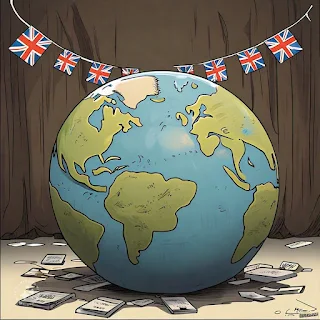The Newly Elected Government in Britain and Its Global Impact
### Domestic Changes and Priorities
**Economic Policy:**
The new government has promised substantial changes in economic policy. With a focus on revitalizing the post-pandemic economy, plans include increased public spending on infrastructure, healthcare, and education. This approach aims to stimulate growth and create jobs, countering the effects of Brexit and COVID-19.
**Social Reforms:**
Social reforms are high on the agenda, with commitments to improve social services and address inequality. Policies aimed at enhancing social security, expanding affordable housing, and ensuring equal opportunities in education and employment are expected to be implemented.
**Climate Action:**
The government’s stance on climate change will be crucial. Committed to achieving net-zero emissions by 2050, the new leadership is expected to introduce stringent environmental regulations, promote renewable energy, and support green technologies.
### International Implications
**Trade Relations:**
One of the most immediate impacts will be on Britain’s trade relations. Post-Brexit trade deals will be reassessed, and efforts to strengthen ties with both EU and non-EU countries will be prioritized. This could lead to a reconfiguration of global trade networks and influence economic policies worldwide.
**Geopolitical Dynamics:**
Britain’s foreign policy will play a pivotal role in shaping global geopolitics. A potential shift towards a more independent stance, while still maintaining strong alliances with traditional partners like the United States, NATO, and the Commonwealth nations, will be closely watched. The new government’s approach to conflicts and cooperation in regions such as the Middle East and Asia will also be critical.
**Global Climate Leadership:**
With a strong emphasis on climate action, Britain is likely to position itself as a leader in global environmental initiatives. This could foster international collaboration on climate issues, influence global policies, and encourage other nations to enhance their commitments to sustainability.
### Economic and Political Ripple Effects
**Market Reactions:**
The election results have already begun to influence global markets. Investors are watching closely to see how new policies will affect economic stability and growth prospects. Changes in Britain’s financial regulations and trade policies could have ripple effects on global markets.
**Diplomatic Relations:**
The new government’s diplomatic strategies will impact international relations. A renewed focus on diplomacy and international cooperation could lead to stronger bilateral and multilateral relationships, affecting global political dynamics.
**Human Rights and Global Policies:**
Britain’s stance on human rights, international law, and global governance will shape its role on the world stage. The government’s positions on issues like international aid, migration, and global health will influence international policies and set precedents for other nations.
### Conclusion
The newly elected government in Britain stands at a pivotal juncture with the potential to enact significant changes both domestically and internationally. As it begins to implement its policies, the world will be watching closely to see how these changes unfold and what impact they will have on global economic, political, and environmental landscapes. The new leadership's actions will undoubtedly shape the future trajectory of Britain's role in the world and its interactions with the global community.



Comments
Post a Comment